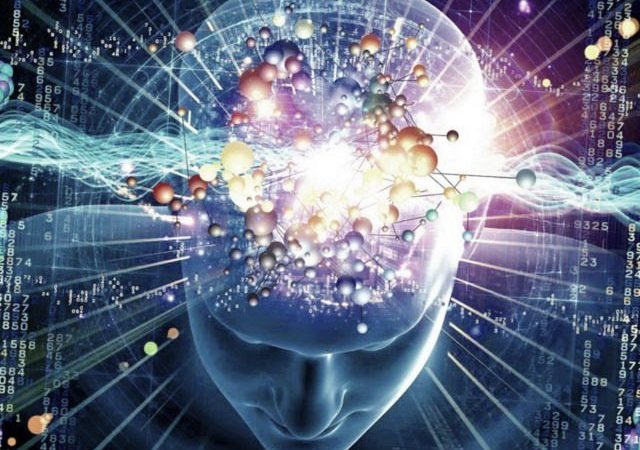For psychologists the terms superego, ego and id are commonplace and refer to institutions of the mind of the human being. In a similar way the words judiciary, executive and legislature are familiar signifiers of the institutions that organize human beings in a state. That these organizing institutions of a democratic state appear to emanate from common human nature has been discussed heretofore. Consider that the judicial branch of government possesses certain essential features of the superego; the executive branch functions much like the ego; and the legislative branch concretely attempts in many ways to recognize and realize the manifold wishes and needs of the collective of individuals in the state and reflects the id.
The nature and significance of the relationship between mind and state has been commented upon since the early days of Western civilization. This commentary appears to begin with Pythagoras’ effort to answer the questions: what is the nature of human nature, and how might this express itself in the organization of human society? To put these questions another way, may the structure and dynamics of the mind have significance for the manner in which the government of a democratic state is formed and made functional?
Pythagoras and later Plato perceived that organizing structures on two levels — the psychological/individual and governmental/societal — are governed by the same principles. While Pythagoras is likely among the first to record this linkage, one of the most impressive presentations of these symmetrical psychological and governmental structures is to be found in the Dialogues of Plato wherein he presented three governance mechanisms of the city-state as reflections of three psychic agencies perceived ubiquitously within the ordinary people who belong to that city-state. Plato reports that the three governing elements of a state appear to be derived from individuals who themselves possess these same elements in a terminal system he called psyche and we refer to as mind.
By fixing his analysis on the continuous tension and conflict among certain institutions of government, Plato posited that the ordering of society is a large-scale replica of the organization of the individual mind. It is then possible to perceive individual minds as microcosms in which the governing features of a governing macrocosm can be apprehended and in a rudimentary way understood.
It may be fruitful to consider this foundational relationship in which individuals give objectivity to a ‘checking and balancing’ terminal system common to individual minds in the formation of a democratic state yet do not consciously acknowledge the independence, dynamics and validity of the governing institutions in this “object” as reflections of the individual mental apparatus. This does not mean that the individual is equal to or stands above this necessary object for governing the collective of human beings. On the contrary, the state is above the individual and governs the individual. The point here is merely this: individuals project their commonly held checking-and-balancing mental apparatus into judicial, executive and legislative mechanisms of a state in an attempt to constitute a government, and then subordinate themselves to this governmental organization.
Human beings are by nature constituted for social living, and inevitably become engaged in the outer events of the social and material world as a way of meeting personal desires and needs that are determined by biological limits of humankind and physical limitations of the world we inhabit. Ancient thinkers as well as contemporary scholars have postulated that there can be no beings that are human without governance and social order.
Individual members of a democratic state unconsciously consent to be governed, as it were, by a state that typifies their nature. It is plausible that the state comes closest to ensuring the expression of naturally determined human potential and relational capacities of its members, as their “lights” accord them a view of what potential and capacity for relations they possess. By means of the deployment of judicial, executive and legislative governance mechanisms of a state, the government is constituted so as to deal at once with inner tensions and conflict as well as challenges from the outer world in much the same way the superego, ego and id of the mind operate in the service of individuals. That is to say, the governing structure of a democratic state is derived from the mental apparatus of individual minds; conversely, the mental apparatus common to individual minds serves as a model that is employed to organize, authorize and empower governance mechanisms which direct the state toward a remote, unreachable goal: the good of all.
Here a terminal system is identified in its individual/psychological and governmental/societal forms. In the latter individuals shape, amplify and adapt governance mechanisms according to their mental make-up in the formation and maintenance of a personality writ large, the state. At the dawn of Western civilization individuals perceived that governance mechanisms of a state most beneficially spring from and “mirror” the dynamic interplay of the mind’s superego, ego and id. Thanks to the psychological model from Sigmund Freud and constitutional invention of James Madison, we can see with more clarity how the structure and dynamics of the mind provide a model for the form and function of a democratic state.
Steven Earl Salmony, Ph.D., M.P.A. is a psychologist residing in Fearrington Village, NC, USA. He can be reached at sesalmony@aol.com.
The MAHB Blog is a venture of the Millennium Alliance for Humanity and the Biosphere. Questions should be directed to joan@mahbonline.org
The views and opinions expressed through the MAHB Website are those of the contributing authors and do not necessarily reflect an official position of the MAHB. The MAHB aims to share a range of perspectives and welcomes the discussions that they prompt.

